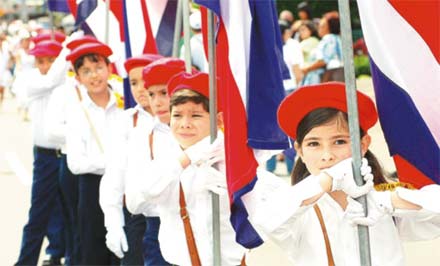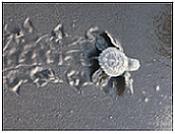Legal Services
2. Authentication of Diplomas and Certificates
4. Shipment of human remains to Costa Rica
5. Marriage requirements for Foreigner
6. Application for Certificate of Delinquency
CONVENTION FOR THE ELIMINATION OF THE LEGALIZATION REQUISITE FOR FOREIGN PUBLIC DOCUMENTS (“CONVENTION OF THE APOSTILLE”)
In March of 2011, Costa Rica joined The Hague Convention on the Apostille, through which is recognized by the effectiveness of a public document issued in any signatory country to the convention.
Starting December 14 of 2011, the Convention will come into force between Costa Rica and the United States.
This means that the documents issued in the United States with the Apostille will be recognized in Costa Rica, without the need to come to our consulates or the Foreign Ministry in San Jose.
The established process of the Convention consists on placing on the public document itself an Apostille that certifies the authenticity of the document’s signature issued in the United States. The Apostille can be obtained in the Secretary of State from the state where the document was issued. For more information from the different Secretaries of State, please visit this website: http://www.fec.gov/pubrec/cfsdd/cfsdd.shtml
2. Authentication of Diplomas and Certificates
If you have studied in the United States of America and require that your documents be recognized by the Costa Rican academic authorities or by a university, school or other institution in Costa Rica, your diplomas and certificates of grades should be authenticated by the Secretary of State.
There are two different types of procedures, depending on the content of the power of attorney: authentication of an existent power of attorney or signing a new power of attorney in the Consul's log book. Please contact your attorney in Costa Rica to help you understand which is the applicable procedure in your case.
Processing time: It can take about an hour.
4. Shipment of human remains to Costa Rica
The following documents must by presented by the Funeral Home to the Secretary of State for authentication:
- Original Death Certificate.
- Letter of No Contagious Disease from the Health Department (no applicable to cremated remains).
- Embalmer's Report or cremation certificate.
Important:
- The person responsible for bringing into the country the human remains must present a copy of the decease’s passport or identity card.
- It is recommended to have a copy of the Costa Rican Id or passport from the person who is bringing the human remains, as well a letter indicating his contact information.
-It is advisable to have a letter from the funeral home letterheaded stating: that only human remains are inside the casket; the flight itinerary; consignee’s name, address, and telephone number.
- The ashes should preferably be transported in a hermetically sealed stainless-steel cup with the name of the deceased, date of birth and death. It is recommended to have a letter from the funeral home letterheaded stating that the urn/container contains only cremated remains of the individual.
5. Marriage Requirement for Foreigners
Civil and/or religious wedding
The documents required to get married in Costa Rica are the following:
- Original birth certificate
- Affidavit of single status (if applicable)
- Valid passport
- Divorce decree (if applicable)
These documents need to follow the authentication procedure before being taken to Costa Rica. We recommend to contact a lawyer or judge if it is a civil marriage, and to contact a priest if it is a religious wedding.
6. Application for Certificate of Delinquency
If you reside outside of Costa Rica and need to get your Certificate of Delinquency, you need to make a specific request to the Consulate of your jurisdiction.
The application letter should be sent to the Consulate and must state:
- Full name of the person requiring the certificate.
- Number of identity card (cédula de identidad) or passport.
- Date of birth.
- Full names of both parents.
- Full name, identity card (cédula de identidad) number and telephone number of the person in Costa Rica who is authorized to pick up the certificate of delinquency.
- Photocopy of both sides of your valid identity card (cédula de identidad) or photocopy of the first two pages of the passport.




